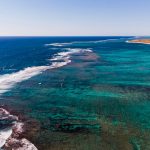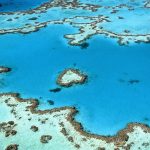 February 11, 2020 10:43 am
Published by Climate Extremes
February 11, 2020 10:43 am
Published by Climate Extremes
Climate models project that all circulation features of the South Indian Ocean, including the Leeuwin Current and Undercurrent, North and South East Madagascar Currents, transport through the Mozambique Channel and Agulhas Current are projected to weaken significantly in the last half of the 21st century with unchecked greenhouse gas emissions.
 November 26, 2019 10:26 am
Published by Climate Extremes
November 26, 2019 10:26 am
Published by Climate Extremes
Solar heating of surface waters in the tropical Indian and Pacific oceans, along with turbulent mixing that moves this heat into the colder deep-reaching Atlantic meridional overturning circulation, play a crucial role in shaping oceanic heat transport pathways
 November 25, 2019 12:15 pm
Published by Climate Extremes
November 25, 2019 12:15 pm
Published by Climate Extremes
This paper investigates the annual cycle in cloud and rainfall measurements over the western equatorial Indian Ocean. While there is a single period of strong rainfall over the region during December-January each year, there are two periods of increased high-top clouds associated with convection.
 September 6, 2019 2:40 pm
Published by Climate Extremes
September 6, 2019 2:40 pm
Published by Climate Extremes
In this study, CLEX researchers use two years of measurements from a flux mooring combined with satellite data and model outputs to understand the seasonal changes in air‐sea fluxes and the role of ocean currents in controlling ocean surface temperatures in the southeast Indian Ocean.
 September 2, 2019 2:54 pm
Published by Climate Extremes
September 2, 2019 2:54 pm
Published by Climate Extremes
This paper reviews the societal and scientific motivations, current status, and future directions of IndOOS, while also discussing the need for enhanced observations in priority areas.
 August 1, 2019 10:00 am
Published by Climate Extremes
August 1, 2019 10:00 am
Published by Climate Extremes
The Climate Variability program has seen an extraordinary amount of activity over the past four months with new arrivals, a clutch of thesis submissions, awards, research voyages and a wealth of research.
 July 9, 2019 1:00 am
Published by Climate Extremes
July 9, 2019 1:00 am
Published by Climate Extremes
Indian Ocean convection caused a powerful planetary wave that led to a drought in South America and a marine heatwave in the South Atlantic that lasted for months.
 July 9, 2019 1:00 am
Published by Climate Extremes
July 9, 2019 1:00 am
Published by Climate Extremes
Nova pesquisa desvendou que a seca severa que ocorreu no sudeste do Brasil no verão de 2013/14 associada a calor extremo tem uma causa comum, um evento climático distante que ocorreu no Oceano Índico. O estudo liderado pela professora da Universidade Federal de Santa Catarina Dra. Regina R. Rodrigues com colaboração de pesquisadores do Centro de Excelência em Extremos Climáticos (CLEX) da Austrália e NOAA dos EUA, sugere que não é a primeira vez que o Oceano Índico levou a... View Article
 July 9, 2019 1:00 am
Published by Climate Extremes
July 9, 2019 1:00 am
Published by Climate Extremes
Un nuevo estudio científico ha demostrado que la secuencia de eventos climáticos en Sudamérica en 2013/14 que incluyó sequía y olas de calor terrestres y marinas se originó a partir de un fenómeno climático en el lado opuesto del mundo –en el Océano Índico. Los resultados del estudio que fueron publicados en Nature Geoscience por un grupo internacional de científicos de la Universidad Federal de Santa Catarina en Brasil, del ARC Centro de Excelencia de Extremos Climáticos en Australia y... View Article
 June 15, 2019 7:16 am
Published by Climate Extremes
June 15, 2019 7:16 am
Published by Climate Extremes
An international team, led by Australian researchers from the ARC Centre of Excellence for Climate Extremes (CLEX) and the Institute for Marine and Antarctic (IMAS) studies, have published in Nature Communications the first global assessment of the major drivers of marine heatwaves.








